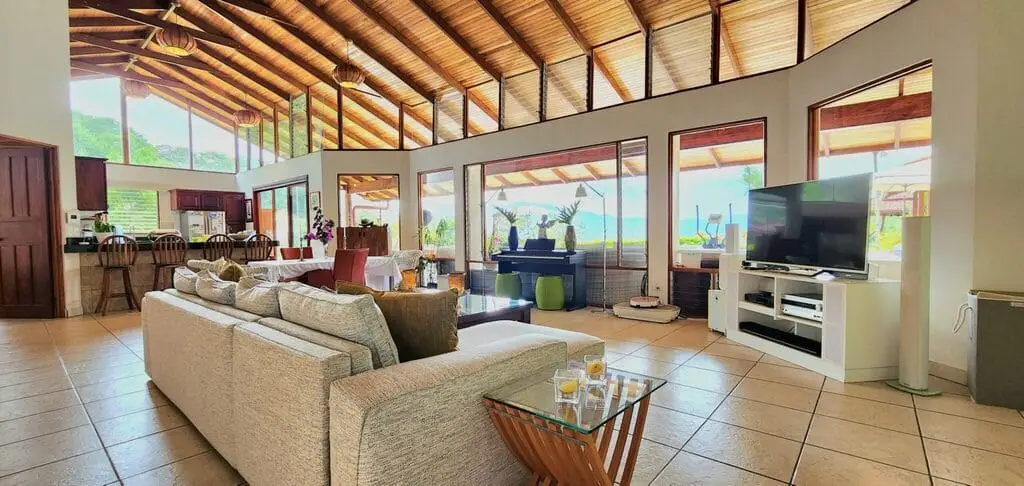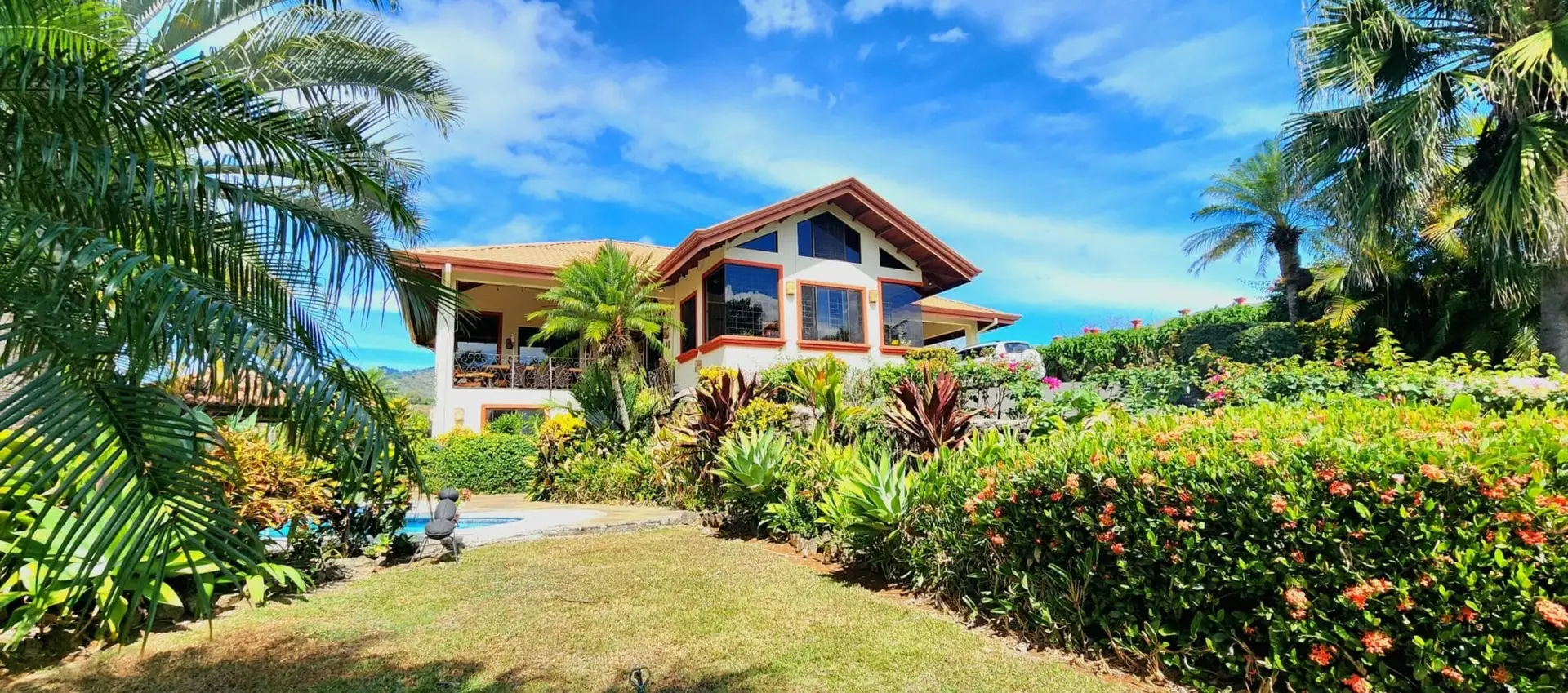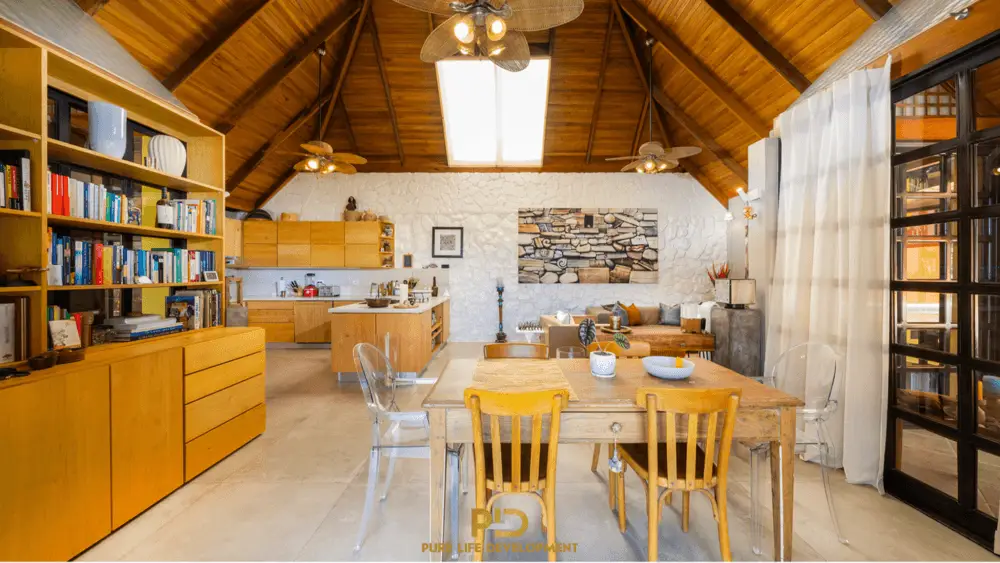Buying A Home In Atenas, Costa Rica: 11 Tips For Beginners
- Dennis J. Easters
- Dennis@pldatenasrealty.com
- +506-8854-7721
In 2005, my family and I made our first trip to Costa Rica. The trip was labeled as a family vacation/exploration expedition to see if we liked the country. If we liked it enough, we’d consider buying a vacation home or something to use as a plan ‘b’, an escape, if the need ever arose. From the moment we touched down in San Jose, I was in love and I knew that we’d soon be sold on this peaceful, Central American paradise. After a 10-day whirlwind trip across the rugged country, we returned to Florida. Six months later, we headed back to this verdant, Jurassic Park wonderland to purchase our first home in Atenas.
A few months after that first trip, we made a second trip to Costa Rica. We viewed properties with a local real estate agent. She was professional and knowledgeable about the area we were interested in exploring, showing us properties with characteristics that met our criteria. We found the ideal home and made an offer. A few hours later we signed the contract. The process was smooth and painless, and we closed the deal 60 days after signing the contract.
We were over the moon, to say the least. That was, until a few months after closing, the previous owner called me at home in Florida to say that the bank was going to foreclose on our home. The catch was, we didn’t have a mortgage. Our purchase was a cash deal, so how could the bank be foreclosing? To make a long story short, the closing attorney had not paid off the seller’s mortgage. Instead, he pocketed the money, using our funds for other deals, hoping to settle-up before anyone noticed what had happened.
I was in a state of panic. After making several calls back and forth to Costa Rica, I was on an airplane in less than 24 hours. Our real estate agent was very supportive and in shock, as she had worked with this particular attorney for many years. With the help of my sister-in-law, who at the time worked in the law department of the University of Costa Rica, we soon had resolved the issue and the mortgage was paid in full.
How could this have happened? Was it avoidable?
At that time, I had over 13 years of experience working in the residential real estate industry. This couldn’t be happening to me, could it? In this case, I had dotted all the i’s and crossed all the t’s. The issue was an inside job between the bank branch manager and the closing attorney. The bank manager provided falsified documents to the closing attorney, showing that the seller’s mortgage had been paid off. This allowed the attorney to provide us with all the appropriate paperwork so that the deal could close without a hitch. I am happy to say that at the end of the day everything was settled in a fast, efficient way.
As professionals, Gerardo and I do our best to make sure this stressful experience never happens to our valued clients. As a buyer, you must be proactive and do your homework. The process of purchasing a home in Costa Rica is not so different from that of any other country. However, there are some differences that you need to be aware of.
We’ve outlined 11 steps that will make the purchasing process as smooth as ‘buttah’.
1. Choose a professional real estate agent
Your choice of real estate agent can make or break a deal. Hiring an agent with experience and expertise is paramount. Ask questions and test their knowledge. If your agent has just hung out their shingle the previous night, you’ll know.
Gerardo and I have worked in the real estate industry for 33+ years. We know our profession inside and out, BUT we still learn new things all the time. If there is a question that we don’t have the answer to, we’ll be the first to admit to it and find the answer.
2. Choose a reputable real estate attorney
Make sure to choose your real estate attorney carefully. Get references. Make sure you understand one another, speaking the same language. If you don’t speak the same language, hire a good interpreter/translator. You need to understand everything that the attorney is saying and anything that you’ll be required to sign.
In Costa Rica, title companies are NOT used as they are in the U.S.A. Here, an attorney will be used to do the title search, create the purchase agreement and preform the final closing. In addition, if you choose to make the purchase using a corporation (more details below), the attorney will be the one to create the company for the purchase of your property.
3. Start your home search
Once you have chosen an agent, start the search. Provide your agent with as much information as possible. Details can be very important to help your agent select properties that meet your criteria. Be completely honest and upfront with your agent, especially concerning your budget.
4. Narrow the search
Once you have taken that first trip out to view homes, if the properties that your agent is showing you are not what you want, stop and explain why the listings are not to your liking. Be specific.
5. Make an offer
Once you have found your dream home, sit down with your agent and make a written offer. The offer can be simple and include information such as: purchase price, escrow amount (typically 10% in Costa Rica), closing date, inclusions (such as furniture or vehicles), property description, who pays closing costs, the due diligence period, special addendums, if any, and signatures.
6. The purchase agreement
Once both parties have agreed on the terms of the purchase, the next step is to have your real estate agent or attorney draw up the official Purchase Agreement. Before signing, the attorney will do a title search and make sure the property and company (if you are buying an existing company) is clean and free of encumbrances. Once the purchase agreement is signed, the clock starts ticking for your due diligence period and making your escrow deposit. The due diligence typically encompasses the title search, home inspection and survey inspection within a specified time frame, generally 14-21 days.
7. Open an escrow account
After the contract is signed, an escrow account must be opened to fund the purchase. Escrow costs vary from company to company, so ask the escrow agent for a list of fees.
8. Taking title
In Costa Rica, there are a few ways to take title. The two most common ways of taking title are;
- Taking title in your personal name, or
- Using a corporation to hold the asset.
Your attorney will explain these options in detail, helping you to make an informed decision about what is the best decision for your particular situation.
9. Final walk through
On the day before or the day of closing, it is important to do a final walk through of the property. Make sure everything is in order and as it should be. Are all the items agreed on to stay with the house still at the property? Is there any damage that didn’t exist previously? Once you are satisfied with the walk through, it is time for the attorney to close the deal.
10. Closing
At the time of closing, your attorney will do a final title search to make sure nothing has been recorded against the property during the contract period. Once everything has been verified, all the pertinent documents will be signed. The attorney will inform the escrow agent to release the funds for the purchase. You’ll receive a copy of all the documents that you’ve signed for your personal records. From the day of closing, it will usually take 10 business days for the documents and the title change to be recorded at the National Registry.
11. Closing Costs
11. Closing Costs. Closing costs can vary from transaction to transaction. Attorney’s fees can range from 1%-2% of the purchase price. Transfer taxes are 1.5%. Registry and documentary stamps are roughly 1% of the sales price or recorded value of the property, whichever is greater. In addition, there’s a 13% VAT on legal fees, real estate commissions, and escrow services.
Are you feeling overwhelmed yet?
There’s no need to feel overwhelmed. This should be a joyous occasion. Remember, your making a purchase that most people only dream about making. Take your time, do your homework and let the professionals that you’ve hired do their jobs. Sit back, relax and start living the “pura vida” in Atenas, Costa Rica!
Explore more about residency and life in Costa Rica
Ready to take the next step?
Explore our luxury property listings to find your dream home in the world’s best climate and start living the lifestyle you’ve worked so hard to achieve.

Dennis Easters
Real Estate Broker
+506-8854-7721
Dennis@pldatenasrealty.com


